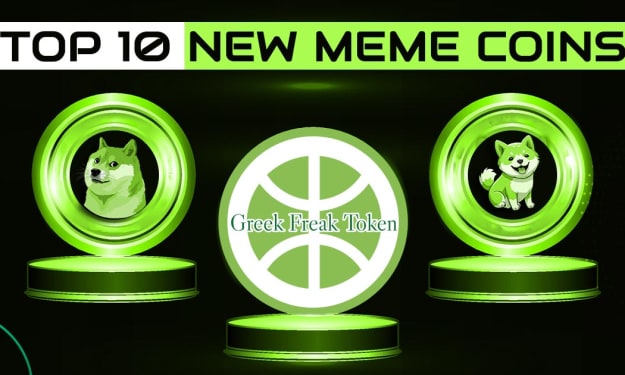Token Development Smart Contract: A Comprehensive Guide
A Comprehensive Guide to Building Trustworthy and Efficient Smart Contracts

Token Development Smart Contracts have revolutionized the world of blockchain technology, enabling the creation and management of digital assets in a secure and automated manner. These smart contracts have become the foundation for various decentralized applications (DApps) and blockchain-based projects. In this article, we will delve deep into the intricacies of Token Development Smart Contracts, covering the essential aspects, methodologies, and tools required to develop smart contracts that foster trust, transparency, and efficiency in the blockchain ecosystem.
What is a Token Development Smart Contract?
A Token Development Smart Contract is a self-executing code residing on a blockchain network, primarily designed to facilitate the creation, issuance, and management of tokens. These tokens can represent digital assets, utility, security, or any other form of value. Smart contracts are built on the foundation of blockchain technology, ensuring that all transactions and operations are immutable, transparent, and tamper-proof.
Advantages of Token Development Smart Contracts
Smart contracts offer numerous advantages, making them a preferred choice for various industries and applications. Some key benefits include:
Trust and Security: By leveraging blockchain's decentralized nature, smart contracts eliminate the need for intermediaries, ensuring trust and security in all transactions.
Automation: Smart contracts execute automatically once predefined conditions are met, reducing the risk of manual errors and delays.
Cost Efficiency: With intermediaries removed, smart contracts reduce transaction costs significantly.
Transparency: All transactions and operations on the blockchain are publicly accessible, promoting transparency and accountability.
Global Accessibility: Smart contracts are accessible from anywhere, making them ideal for global applications.
Fraud Prevention: The decentralized nature of blockchain ensures resistance to fraud and unauthorized manipulations.
Key Elements of Token Development Smart Contracts
When developing a Token Development Smart Contract, several essential elements need to be considered to ensure its functionality and security:
1. Token Standards
Token standards define the rules and functionalities of a token within the smart contract. The most common standards include ERC-20, ERC-721, and ERC-1155, each catering to specific token types and use cases.
2. Smart Contract Language
Choosing the right programming language is crucial for smart contract development. Solidity, a language specifically designed for Ethereum, is the most widely used language for developing smart contracts.
3. Token Distribution
Determining how tokens will be distributed is a critical aspect of the smart contract. Token distribution methods can include a public sale, private sale, airdrops, or token vesting.
4. Wallet Integration
Integrating wallet functionalities into the smart contract enables users to store, manage, and transfer their tokens securely.
5. Security Audits
Conducting thorough security audits is vital to identify vulnerabilities and loopholes in the smart contract code, ensuring a robust and secure system.
6. Gas Optimization
Optimizing gas usage is crucial to reduce transaction costs and improve the overall efficiency of the smart contract.
Best Practices for Developing Token Development Smart Contracts
Developing secure and reliable smart contracts requires adherence to best practices. Here are some guidelines to follow during the development process:
1. Code Reusability
Reuse existing, well-audited code wherever possible to minimize the chances of introducing new bugs and vulnerabilities.
2. Test-Driven Development (TDD)
Implement a test-driven development approach to identify and address issues during the early stages of development.
3. Error Handling
Incorporate comprehensive error handling mechanisms to handle unexpected scenarios gracefully.
4. Documentation
Thoroughly document the smart contract code, making it easier for other developers to understand and contribute to the project.
5. External Dependency Handling
Handle external dependencies carefully to avoid security risks and ensure seamless integration.
6. Regular Updates and Bug Fixes
Stay updated with the latest developments and promptly address any reported bugs or vulnerabilities.
Tools and Frameworks for Token Development Smart Contracts
Various tools and frameworks simplify the development process and enhance the efficiency of Token Development Smart Contracts:
1. Truffle Suite
Truffle is a popular development framework for Ethereum that provides essential tools for compiling, deploying, and testing smart contracts.
2. Remix IDE
Remix is a powerful browser-based IDE that enables developers to write, test, and deploy smart contracts with ease
3. OpenZeppelin
OpenZeppelin is a library of secure, reusable smart contracts that follow best practices and industry standards.
4. Ganache
Ganache is a personal blockchain for Ethereum development, facilitating rapid prototyping and testing.
5. Hardhat
Hardhat is a flexible and extensible development environment for Ethereum that supports tasks, plugins, and scripts.
6. MyEtherWallet (MEW)
MEW is a user-friendly and secure interface to interact with smart contracts and manage Ethereum-based assets.
Step-by-Step Guide to Develop a Token Development Smart Contract
Follow these steps to create a Token Development Smart Contract:
Step 1: Define Token Standards
Choose the appropriate token standard (e.g., ERC-20, ERC-721) based on your project's requirements.
Step 2: Install Necessary Tools
Install essential development tools like Truffle and Ganache to set up your development environment.
Step 3: Write Smart Contract Code
Using the chosen programming language (e.g., Solidity), write the code for the smart contract, defining token functionalities and operations.
Step 4: Compile and Deploy
Compile the smart contract code and deploy it on the desired blockchain network using Truffle.
Step 5: Test the Smart Contract
Thoroughly test the smart contract for bugs, vulnerabilities, and desired functionalities using automated tests.
Step 6: Security Audit
Engage in a security audit to identify and address any potential security issues in the smart contract.
Step 7: Token Distribution
Implement the token distribution mechanism as defined in your smart contract.
Step 8: Integration with Wallets
Integrate wallet functionalities to enable users to interact with their tokens seamlessly.
Step 9: Gas Optimization
Optimize gas usage to reduce transaction costs and improve the efficiency of the smart contract.
FAQs (Frequently Asked Questions)
1. What are the Common Token Standards used in Smart Contracts?
The common token standards used in smart contracts are ERC-20, ERC-721, and ERC-1155. Each standard serves different purposes and caters to various types of tokens.
2. Can Smart Contracts be Modified after Deployment?
Once deployed, smart contracts are immutable, meaning their code cannot be changed. Any modifications require the creation of a new contract.
3. How Can I Ensure the Security of My Smart Contract?
Conduct thorough security audits and follow best practices while developing the smart contract. Additionally, make use of well-audited libraries and frameworks.
4. What Happens if There is an Error in the Smart Contract Code?
Errors in the smart contract code can lead to unexpected behavior or even loss of funds. Proper error handling mechanisms should be in place to minimize such risks.
5. Are Smart Contracts Legal?
Smart contracts are legally binding as long as they fulfill the criteria of a valid contract and adhere to relevant laws and regulations.
6. Can Smart Contracts Interact with External Data?
Yes, smart contracts can interact with external data using oracles to fetch real-world information onto the blockchain.
Conclusion:
Token Development Smart Contracts have transformed the way digital assets are created, managed, and distributed. By leveraging the power of blockchain and smart contract technology, businesses and developers can build transparent, secure, and efficient systems for a wide range of applications. To succeed in the rapidly evolving blockchain ecosystem, staying updated with the latest tools, best practices, and standards is crucial. Whether you are building tokens for fundraising, gaming, or governance, the principles discussed in this article will serve as a solid foundation for your Token Development Smart Contract journey.
About the Creator
Dean Johns
I'm Dean Johns, CEO of Shalong Pvt Lmt. And also a Leading crypto inverstor over Past 8 Years. Giving Tips & Tricks to all People about Crypto Inverstment who Wants to inverst Your Money on Crypto in Future Days.






Comments
There are no comments for this story
Be the first to respond and start the conversation.